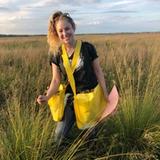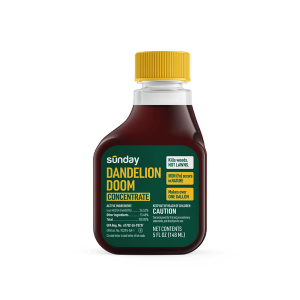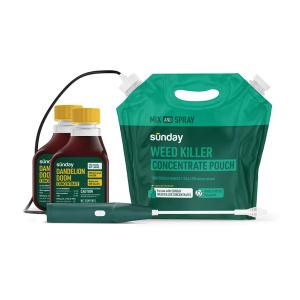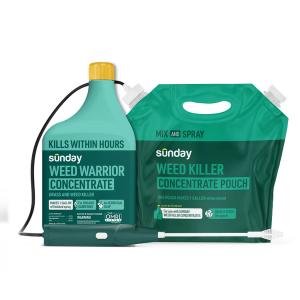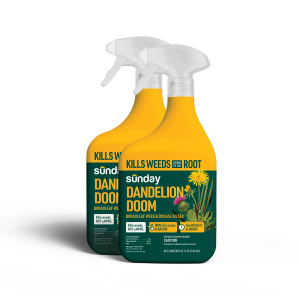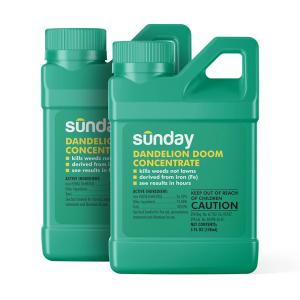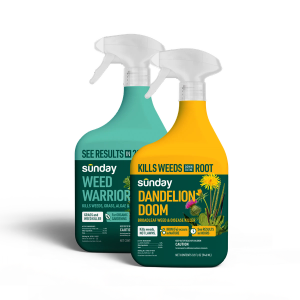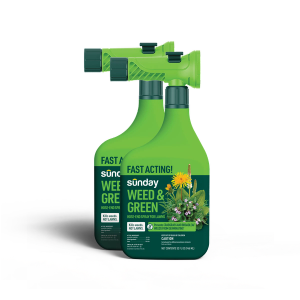What is Green Out?
Green Out is a nitrogen-free liquid lawn fertilizer formulated with potassium, iron, seaweed, and molasses to stimulate lawn growth and greening and improve stress tolerance.
And it's fertilizer blackout compliant, so you can apply it at any point during the season—no matter where you are.
When to apply Green Out
Apply when daily average temperatures are right for your grass. Cool-season grasses require temps above 40-49° degrees, and warm-season grasses need 60-69° F.
For best results, apply every 4-6 weeks to well-hydrated grass in the early morning or evening.
How to apply Green Out with your custom plan
Find your custom application dates found within your My Plan page!
How to apply Green Out
Prep the pouch
Shake the pouch. Then remove the cap and attach the sprayer nozzle.
Attach your hose
Hook up your hose to the sprayer nozzle. Then turn on the water and open the valve to spray.
Spray it on
Aim for a light, even coat of nutrients across the entire coverage area, doubling back for an additional coat if needed. A full pouch should take about 10–15 minutes to apply.
Green Out application rates
- One pouch can cover lawns between 1,000–3,000 square feet
- Two pouches can cover lawns between 3,000–6,000 square feet
- Three pouches can cover lawns 9,000+ square feet
Save for later
Save your sprayer nozzle for next time.
Let it dry
Allow grass to dry fully for best results. You can get back on your lawn as soon as it dries!
Sunday Tip:
Want to plan for next time? Check your My Plan account page to see your next application date.
Green Out application tips
- Water your lawn 2 hours before application if it's dry
- You can apply to moist soil, but not if rain is expected within 3 hours
- Apply between 50-85 degrees F in the early morning or evening
- Let fertilizer dry before walking on the lawn—it can take 4-24 hrs
- Wait 2 days after applying before mowing
- Follow instructions and avoid overuse
Let's get growing
Our lawn engine uses satellite data to map out your lawn size and determine things like average rainfall, common weeds, and pest activity.
Green Out FAQs
What if I miss an application?
Don't worry if you miss an application! You can apply to Green Out before or after your anticipated application date. Just wait at least a week between fertilizer applications to avoid overapplication.
How do I use this with other Sunday products?
Green Out works with Sunday custom plans and other Sunday lawn products. When applying with other Sunday products, let liquid fertilizers dry entirely before applying anything else to the lawn. Then, check to see if there are any application time frames to account for.
For best results, use lawn fertilizer in combination with weed control and grass seed. This will help you feed properly, reduce weeds, and introduce better grasses to your lawn.
When should I stop fertilizing?
Stop fertilizing in the fall—sometime between the end of September and mid-October when temperatures cool down and lawns are no longer actively growing.
How and where do I store products?
Store this product sitting upright with the cap closed tightly. Do not store in excessive heat or freezing temperatures. Pouches can be reused but shake well before each use for optimal performance.

